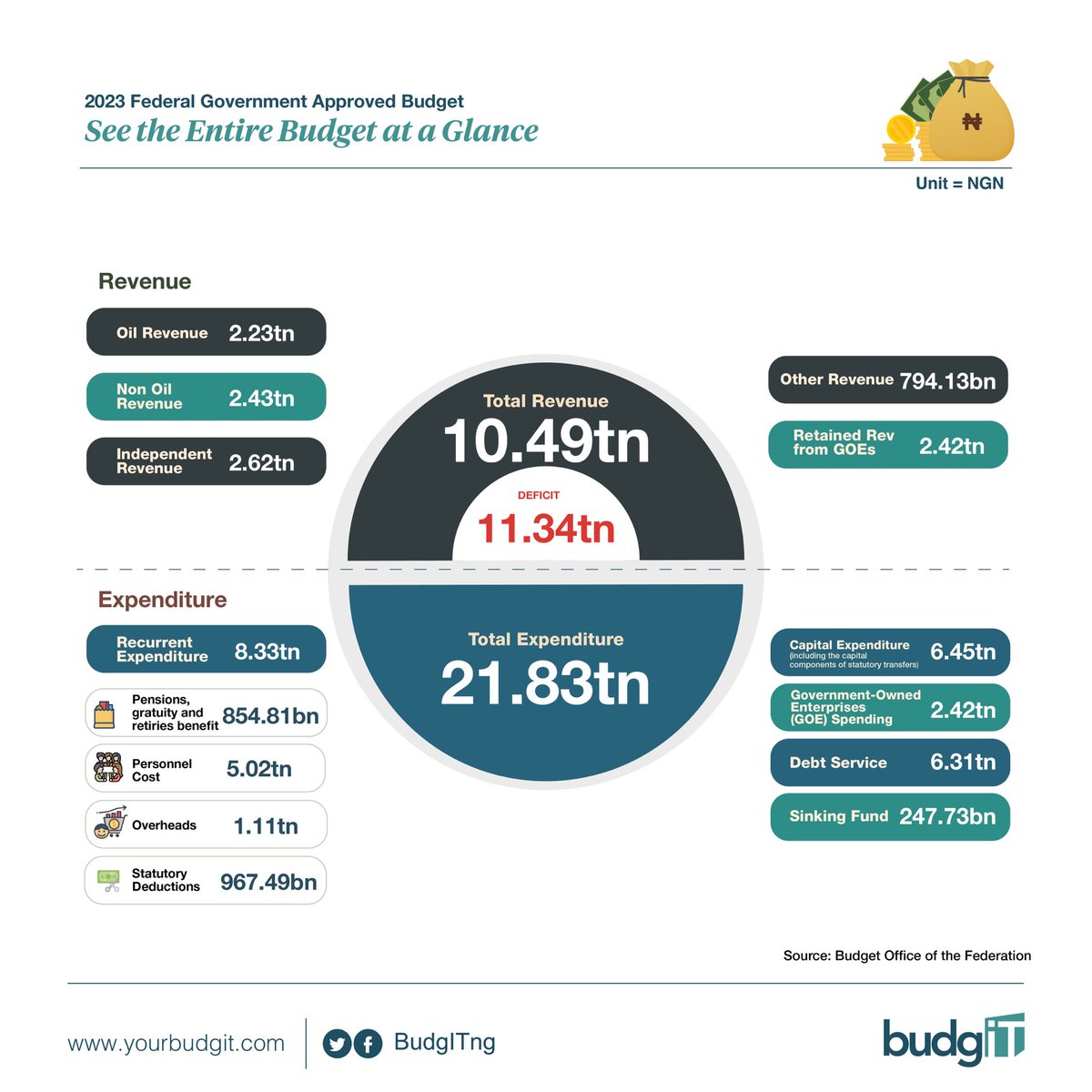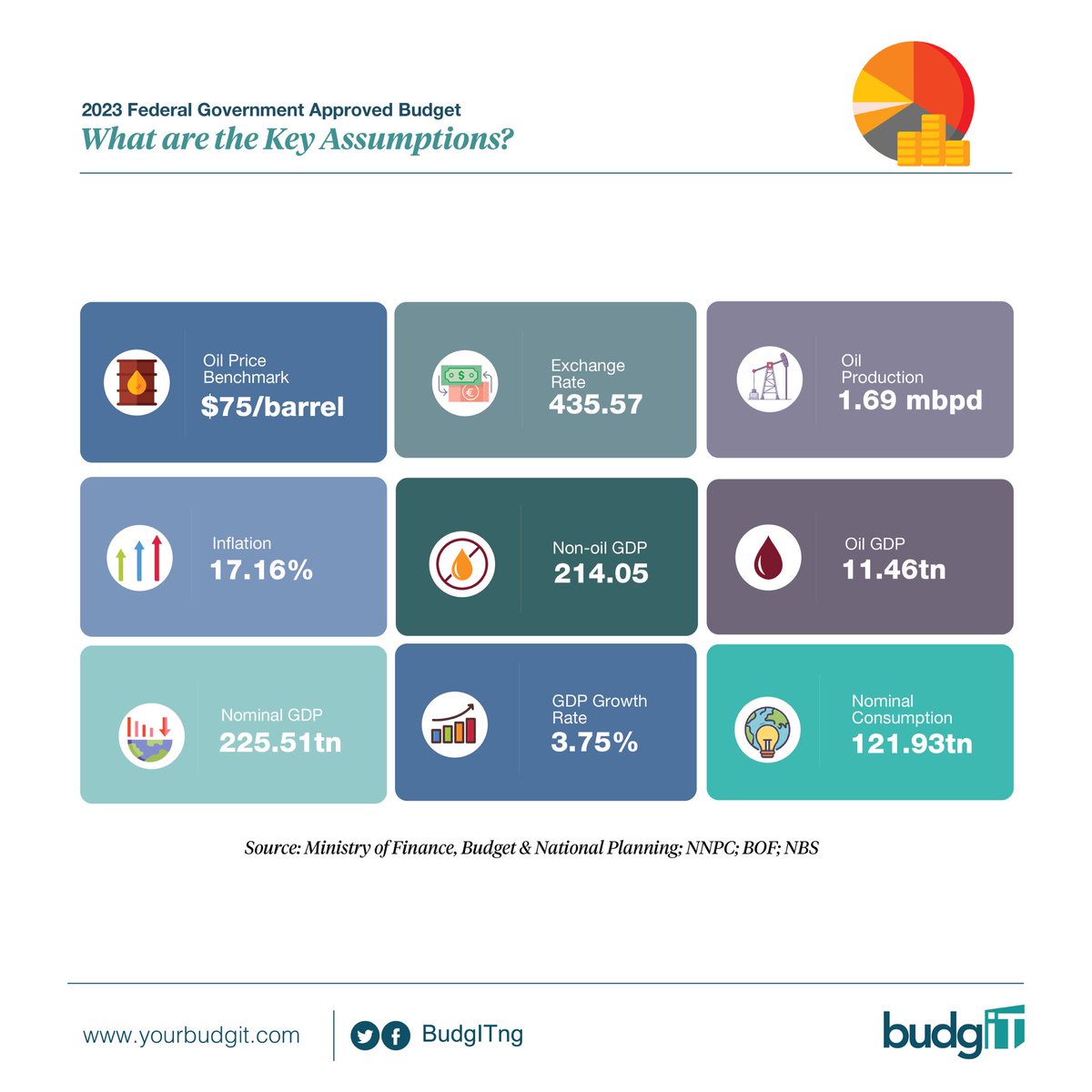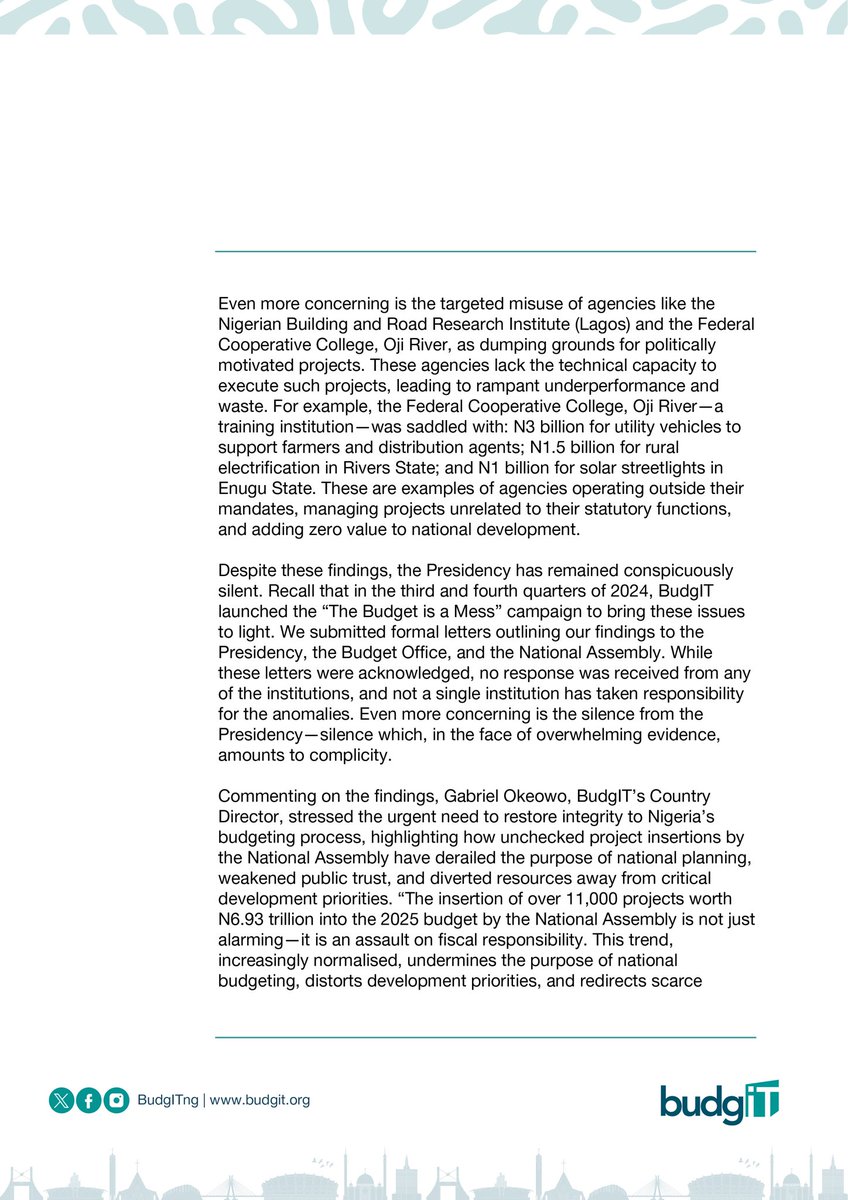Dear Nigerians,
On Jan 3, @MBuhari signed the 2023 Appropriation Bill of N21.83tn into law, Nigeria’s largest budget in history & the last of his administration. The budget is based on a N10.49tn revenue, and N11.34tn deficit.
Where will this money come from? 1/5 #AskQuestion

On Jan 3, @MBuhari signed the 2023 Appropriation Bill of N21.83tn into law, Nigeria’s largest budget in history & the last of his administration. The budget is based on a N10.49tn revenue, and N11.34tn deficit.
Where will this money come from? 1/5 #AskQuestion


From the total revenue of N10.49tn, independent revenue has the highest share of N2.62tn, Non-oil Revenue has N2.43tn, while N2.23tn will be gotten from oil revenue. Retained Revenue from GOEs is N2.42tn, and other revenue will generate N794.13bn. 2/5 



Of the N21.83tn budget, recurrent expenditure has the highest allocation of N8.33tn, gulping nearly 40% of the budget. This includes a personnel cost of N5.02tn, overhead cost of N1.11tn, statutory deductions of N967.49bn & pension, gratuity & retirees benefit at N854.81tn…3/5 



...N6.31tn has been earmarked for debt service, representing approximately 29%, while capital expenditure has 27% of the budget at N6.45tn. 4/5 

The 2023 budget is based on oil production of 1.69 million barrels per day at $75 per barrel. The projected GDP growth will be at 3.75%, with an exchange rate of N435.57/$ and an inflation rate of 17.16%. 5/5.
A detailed analysis of the budget is ongoing and will be out soon.
A detailed analysis of the budget is ongoing and will be out soon.

Kindly note that the pension, gratuity and retirees benefit which forms part of the recurrent expenditure is N854.81bn.
• • •
Missing some Tweet in this thread? You can try to
force a refresh























